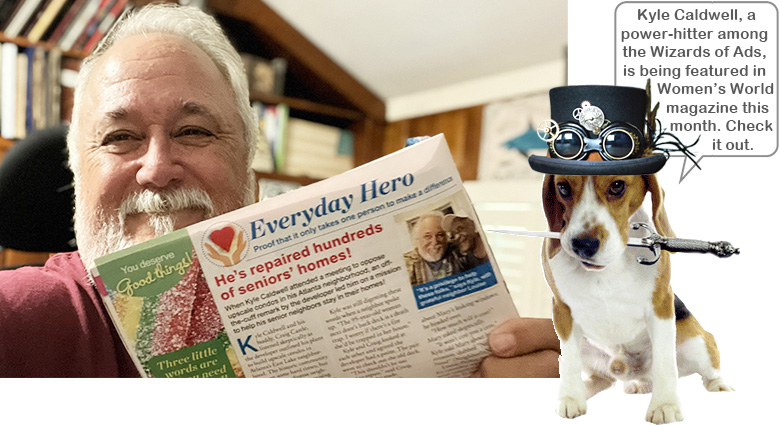
My partner Kyle started a non-profit called “Neighbor in Need” after a developer made a comment that caused Kyle to become concerned about all the elderly people in his neighborhood who didn’t have the money to repair their homes, buy hot water heaters, replace air conditioners, or fix roof leaks. So Kyle decided to do something about it.
What Kyle did was new, surprising, and different.
That’s why it worked.
If you want to bore people, just say what they expected you to say and do what they expected you to do. It works every time.
You might even see them fall asleep.
I have a friend who is building a condo tower in a town with a population of less than 100,000 people. He called a few days ago, laughing.
He had hired a worldwide, world-famous company to manage the sale of the residential units in his building. They made a presentation to him about the “tried-and-true marketing plan” they intended to use.
My friend said, “No, I’m going to ask my buddy to write me a series of radio ads. I’m planning to spend a small fraction of what you’re telling me I need to spend.”
These professionals, understandably, began to vibrate with panic. “But we’ve tried radio and it doesn’t work! We’ve tried it again and again and it doesn’t work! You need to follow our plan!”
My friend told them that radio advertising – quote – “works only as good as the ads you write.”
Later, when they actually heard the radio ads, their panic rose to whole new level. The language and perspective of the ads was new, surprising, and different. And those three words can often mean, “experimental, reckless, and dangerous.”
Things that are new, surprising, and different never feel as reliable as traditional wisdom.
Don’t get me wrong; I believe in bringing the best of the past forward. I believe it to the core of my soul. In my heart, I am a traditionalist. But the problem with traditional wisdom is that it is often more tradition than wisdom.
The problem with traditional wisdom in advertising is that it creates ads that feel familiar. And familiarity breeds contempt. Remember what I said earlier? “If you want to bore people, just say what they expected you to say and do what they expected you to do.”
People hate ads that are predictable.
The real estate marketers begged him not to air the crazy radio ads. They urged him to consider the story of how – in a much bigger city – they were able to convince nearly 1,500 people to register so that they might have a chance to buy a condo unit the moment they became available.
Real estate roll-out campaigns like these typically span 56 days. The best they had ever done in 56 days– with a massive online push and billboards that blanketed a major city – was about 1,500 registrations.
My friend was laughing because we were at day 14 of our radio push and our “experimental, reckless, and dangerous” radio ads had already generated more than 1,400 registrations and would soon top fifteen hundred.
I wrote four ads and only the first of the four has been aired.
I believe the second and third ads are the strongest.
So now you know why my friend was laughing.
I want you to do me three favors:
1. Put things in your ads that are new, surprising, and different.
Delight the public. Be remarkable.
2. Quit thinking that the secret of success is to – quote – “reach the right people.”
3. Slap the shit out of anyone who says to you, “No one listens to the radio anymore.”
Indy has a wonderful rabbit hole prepared for you. To enter the rabbit hole, just click the image of Indy Beagle at the top of this page. Each click of an image takes you one page deeper.
Ciao for Niao,
Roy H. Williams
 Today, roving reporter Rotbart celebrates a decade of hosting Monday Morning Radio with a special panel of reporters and editors discussing the future of business journalism. Chris Roush is a veteran business journalist who has written a provocative new book contending that significant changes must take place in how business journalism organizations operate. Joining Chris and Rotbart to debate the book’s premise are:
Today, roving reporter Rotbart celebrates a decade of hosting Monday Morning Radio with a special panel of reporters and editors discussing the future of business journalism. Chris Roush is a veteran business journalist who has written a provocative new book contending that significant changes must take place in how business journalism organizations operate. Joining Chris and Rotbart to debate the book’s premise are:
Peter Coy, Opinion Economics Writer, The New York Times
Henry Dubroff, Owner and Founder, Pacific Coast Business Times
Matt Murray, Editor in Chief, The Wall Street Journal
Matt Quayle, Senior Executive Producer, CNBC-TV
Hold on to your hats, boys and girls. The storm is about to begin at MondayMorningRadio.com